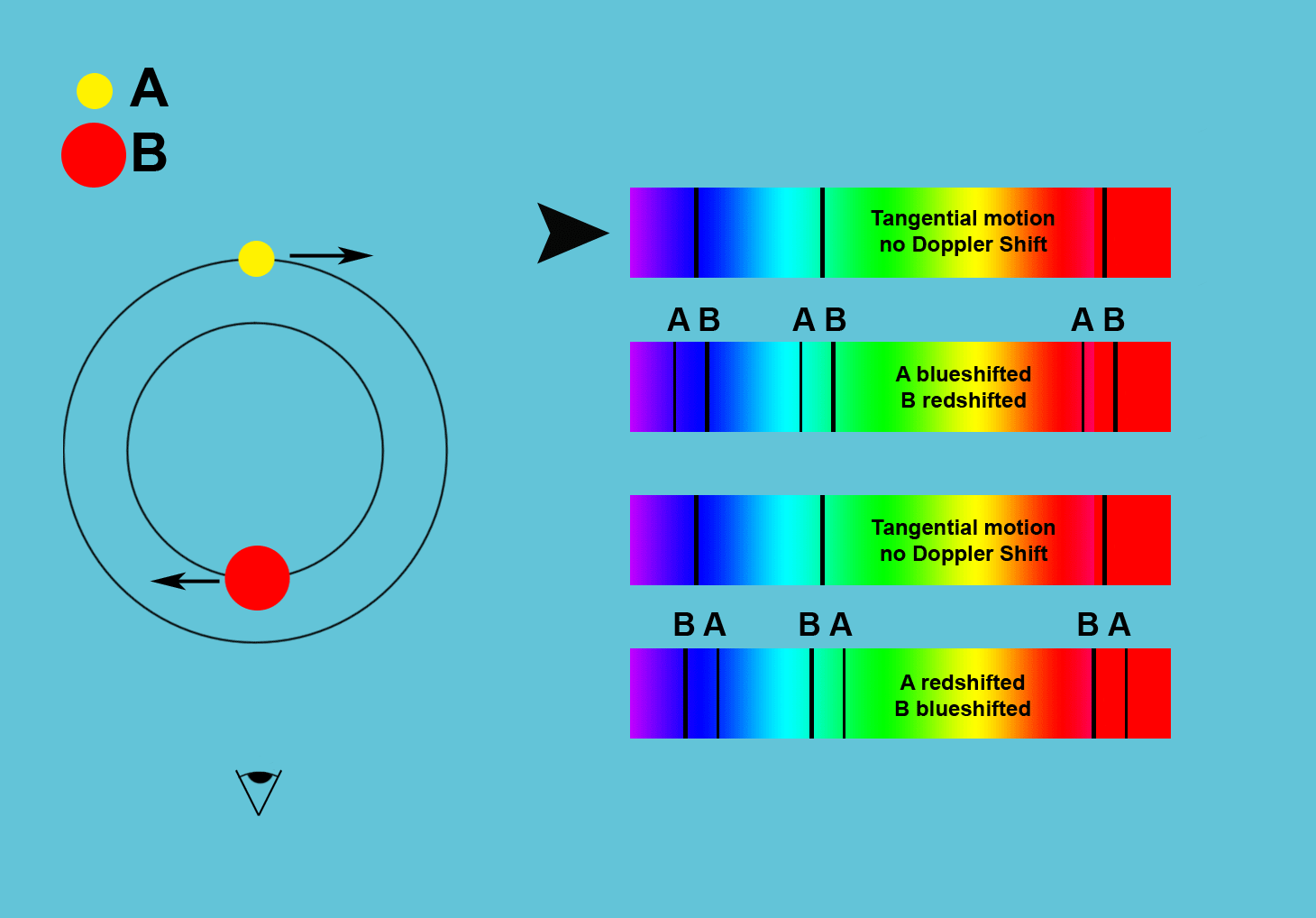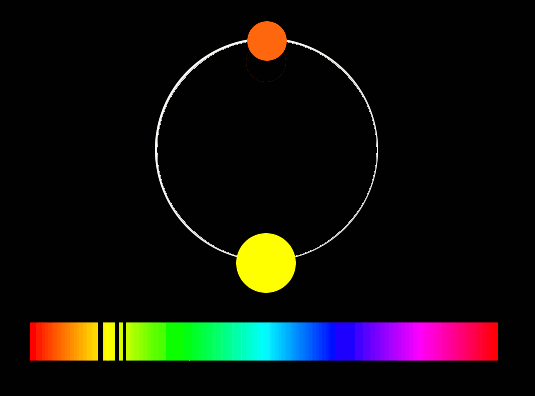Before starting the mission to measure the mass of the spectroscopic binary star, we need to know what is a binary star. So, what is a binary star system? Well, in simple words when two stars orbit around a common center of mass, then this system of stars are called binary system. There are different kinds of binary system. I discussed that in one of my posts about binary stars (here) Today's topic is all about spectroscopic binary. There are binary stars which we cannot detect visually but that does not mean that we can not detect them. There is another way to detect them. Because of their orbital motion, there happens periodic Doppler shift in their spectral line. This kind of binary systems are called Spectroscopic binary system. When the inclination angle is of zero degrees, we can't even detect binary stars in this way.
Now, it can always happen that one of the components is brighter than the other one, in this case, we will get the spectral line of only the bright star, blue or red depending on is it towards the observer or moving away from it. But, if it happens that both of the components has almost the same brightness, then we can see the spectrum of both stars in which we can observe the periodic separation of spectral lines. It is maximum when both of the stars have the largest radial velocity (it happens when one is toward the observer, another moving away from it)
In the picture, is shown the motion of two objects of different mass orbiting in circular orbits, in motion of spectral line because of Doppler effect, When the stars are moving in a circular motion these curves are sinusoidal, although of different amplitudes. Their period of revolution is same, but the massive star has an orbit of less radius than the other.

But when the orbit is of elliptical shape, it is a completely different case, orbital velocity is no more constant (maximum in a periastron and minimum in apastron) and so radial velocity curve is no more symmetrical.

the same binary system but differently oriented toward the observer can look differently The shape of the radial velocity curve totally depends on the eccentricity of the orbits and longitude of periastron and amplitude is inversely proportional to the mass of the stars in the binary system.
Mass of the spectroscopic binary stars
Mass of the spectroscopic binary star is measured through the radial velocity of the components. If we can get the spectra of both component, then from Doppler shifting of the spectral line we can measure the velocity of orbital motion of component around their center of mass v1 and v2.
Radius around the center of mass are r1 and r2. So,


From here and from the relation between mass and radius we find
 .....................(3)
.....................(3)By adding equation (1) and (2) we find
 ...................(4)
...................(4)Now, using Kepler's third law (relation between period and radius of orbit and using the value of velocity in the place of radius from the above equation we can find that
 ....................(5)
....................(5)Using equation (3) and (5) we can measure the mass of the components of the spectroscopic binary stars.

References
<1> Erika Bohm Vitense, Stellar Astrophysics
<2> Olga Atancković, General Astrophysics (Opšta Astrofizika)
<3>Wikimedia
<4>Csiro and
All equations are written in Quicklatex
two photos are my original work


I love your article @rifkan, but I must read a lot of your other posts in order to undearstand it better, but I'm looking forward to a new knowledge!
Thanks a lot. you should make a discord account so that I can add you in teamserbia
Congratulations @rifkan! You have completed some achievement on Steemit and have been rewarded with new badge(s) :
Click on any badge to view your own Board of Honor on SteemitBoard.
To support your work, I also upvoted your post!
For more information about SteemitBoard, click here
If you no longer want to receive notifications, reply to this comment with the word
STOP